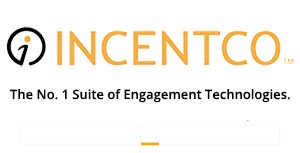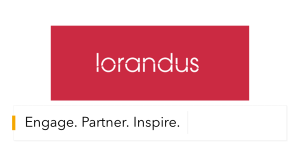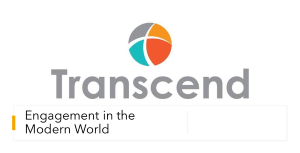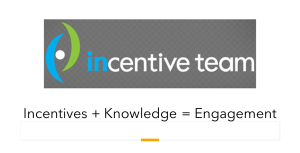Mid-Year 2023 Stakeholder Capitalism Update: Gradual Progress
Impact of Anti-ESG Forces Remains Minimal, But Causes Hesitation
Historically Low Customer and Employee Engagement Will Drive Continued Attention
New EU Corporate Sustainability Reporting Directive Laws to Challenge Greenwashing and Advertising Claims
End of Third-Party Cookies Will Put New Focus on Permission
Rise of Enterprise Engagement Technology to Integrate Engagement
Impact of AI on People Management
The Stakeholder Management Knowledge Deficit
By Bruce Bolger
Until artificial intelligence (AI) has eliminated the need for people in business, organizations face multiple challenges shifting to a strategic and systematic
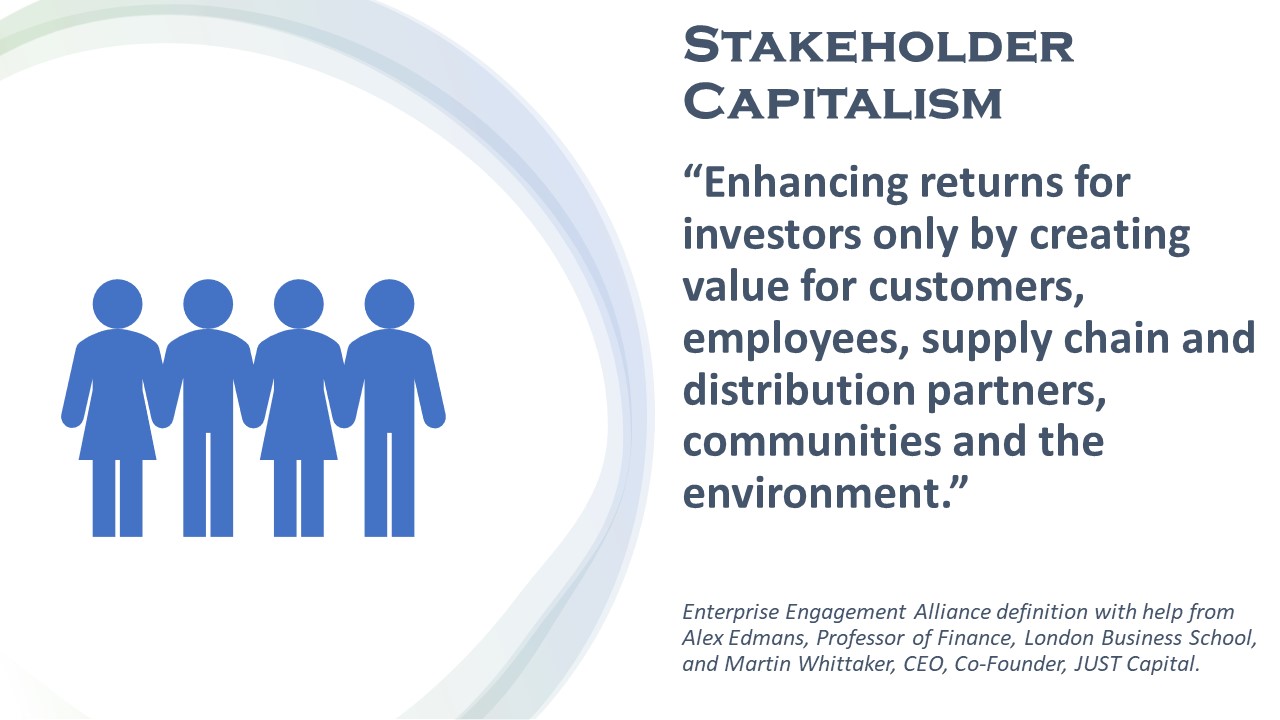 stakeholder approach to people management across the enterprise. Common sense, and both empirical and qualitative research, underline the premise that organizations that fully engage their customers, employees, supply chain and distribution partners, and communities generally will outperform those that do not. That doesn’t make the shift any easier, given that it involves a stakeholder approach to management not taught in many schools.
stakeholder approach to people management across the enterprise. Common sense, and both empirical and qualitative research, underline the premise that organizations that fully engage their customers, employees, supply chain and distribution partners, and communities generally will outperform those that do not. That doesn’t make the shift any easier, given that it involves a stakeholder approach to management not taught in many schools. Many companies remain stalled, despite unprecedented low levels of customer and employee engagement and loyalty, the coming need for large companies to disclose specific comparable information on how they treat all their stakeholders—customers, employees, supply chain and distribution partners, and communities under the new European Union Corporate Sustainability Reporting Directive disclosure law--growing pressure from investors to create new value and lower risks through better management of the stakeholders needed for value creation, and the increasing ability of consumers to control which messages they see and from who.
The situation is like that of total quality management in the late 1980s, when ISO (International Organization for Standardization) published ISO 9000 quality standards. As a result of significant competition from the Japanese and poor quality in US manufacturing, there was a lot of talk in the US about quality and ad hoc initiatives, but most manufacturers did not begin to make serious strides until the ISO standards pushed them to apply a more strategic and systematic approach across the supply chain.
Before we discuss the state of Stakeholder Capitalism, first we must define it: “enhancing returns for investors only by creating value for customers, employees, supply chain and distribution partners, and the environment.” This definition, based on usage in academic journals and on its practical application in business for decades before the terms "woke" or even "ESG," was published in the spring of 2020 in a Forbes article, "Can Stakeholder Capitalism Save Capitalism" by Alex Edmans, Professor of Finance at the London Business School and author of Grow the Pie, and Bruce Bolger, Founder of the Enterprise Engagement Alliance, with input from Martin Whittaker, CEO and Co-Founder of JUST Capital. Click here for a history of Stakeholder Capitalism.
We a nearing the fourth annivesary the Business Roundtable's 2019 proclamation that corporations need to address the interests of all stakeholders. Here is an overview of the latest trends.
Impact of Anti-ESG Forces Remains Minimal, But Causes Hesitation
The Stakeholder Capitalism approach to business proceeds apace, at least from a legal point of view. The number of unsuccessful anti-ESG shareholder resolutions, stalled anti-ESG legislative efforts even in red states, lawsuits filed by pension funds in opposition to the laws, the continued move of major corporations toward more sustainable management practices, the growing number and content of corporate sustainability reports and the obvious coming impact of the new EU CSRD clearly suggest continued progress. That said, some business people, including Larry Fink, the BlackRock, CEO who helped kick off the controversy, have admitted getting mixed up in the discussion about ESG and prefer not to use the term anymore.
The hiccup occurred when Stakeholder Capitalism and ESG became conflated with "woke", partly because of the lack of serious attention paid by Business Roundtable and Larry Fink of BlackRock when in 2018 and 2019 respectively, they issued pronouncements about a stakeholder approach to business that set off opposition from the left and right. Neither the Business Roundtable or Larry Fink appear to have done careful homework about a nearly 50-year-old business field based on the same principles that enhances quality in manufacturing: a strategic and systematic approach grounded in a clear purpose, goals, and objectives and a respect for the value created by all stakeholders. Issued during a period of heightened social tension, their statements sounded like greenwashing instead of the promotion of better business practices, which both parties now say is all that they meant.
Progressives such as New York Times global economics editor and author of Davos Man: How Billionaires Devoured the World decried the pledges as little more than noblesse oblige, or bones thrown by aristocrats to the masses to greenwash their practices. The right, led by a Harvard Law School legal scholar Lucian Bebchuk, boiled it down to robbing from shareholders to line the pockets of special interest groups promoting social agendas.
Similarly, the right wing swept up Diversity, Equity, and Inclusion (DEI) efforts into its anti-woke agenda, viewing it as a diversion of valuable time and resources, when, as Eric Darrisaw, Engagement Advisor for the Impact Shares among other roles in the investment world, recently argues in an ESM viewpoint that it’s simply better business to have the broadest possible composition of customers, employees, supply chain and distribution partner management, and communities.
The true headwinds remain the fact that very few people know about stakeholder management, it is taught in hardly any schools, or the fact that it’s closer to total quality management for people than corporate social responsibility.
Historically Low Customer and Employee Engagement Will Drive Continued Attention
During the height of manufacturing inefficiency in the last century, organizations buried high levels of defects and customer dissatisfaction into their business models. Today, organizations are doing the same with stakeholders, tolerating record low levels of customer satisfaction and employee engagement around the world as if these are simply sunk costs. A growing body of human capital management tools is beginning to shed a clear light on the potential significant waste organizations build into their business models, just as they did poor quality in manufacturing during the last century. Despite compelling evidence that organizations with highly engaged stakeholders outperform those who don’t, it’s safe to say that, short of the ability for CEOs to finally visualize the waste, even competitive pressures from organizations that do a better job of stakeholder engagement would not be enough to accelerate the process without the coming impact of the European Union Corporate Sustainability and Reporting Directive requiring stakeholder management disclosures.
New EU Corporate Sustainability Reporting Directive Disclosure Laws to Challenge Greenwashing and Advertising Claims
Specifically created to reduce greenwashing and to level the playing field through transparency, the EU Corporate Sustainability Directive is likely to make most corporate "responsibility" reports and human capital reporting obselete in that they will now have to provide very specific information in an easily comparable manner. The emphasis is on sustainability, value creation, and double materiality, not "responsibility." The law also will put pressure on marketing departments to make sure their claims can be verifed, as the law requires very specific disclosures on promises made to customers and how they are fulfilled. As outlined in this comprehensive EEA report for boards, executives, and asset managers, this new law will require an unprecedented level of disclosures on an organization’s purpose, goals, objectives, stakeholder engagement strategies, and metrics, including employee turnover, diversity, pay equity, training and development, health and safety, etc. Also included are the workforce management practices of their supply chain and business partners, as well as how their policies and practices relate to their customers, supply chain and distribution partners. All this information must be provided by 60,000 or more companies around the world, including at least 3,000 in the US and many of their supply chain and distribution partners, in a public database organized for easy comparison between organizations.
The very framework of this new reporting requirement is the essence of a stakeholder approach to management: assessing how organizations create value for stakeholders and the risks of failing to do so.
End of Third-Party Cookies Will Put New Focus on Permission
As reported recently in ESM, marketers can no longer rely on using advertising networks to display their ads across multiple web sites without one's direct consent, because the major web browsers are discontinuing support the third-party cookies. Marketing experts all agree that this will require companies to use more incentives, promotions, as well as content, services, and other devices to build their own permission-based databases. The potential benefit is huge: the ability to target market to people who are truly engaged. Organizations traditionally have relied on sweepstakes, contests, events, and other promotions to get people to sign up. The big challenge: many marketers still don’t know how to use permission to build relationships through compelling strategies and tactics, and many publishers do not have a business model that clearly supports contextual marketing.
Rise of Enterprise Engagement Technology to Integrate Engagement
Since the 2000s, engagement technology has tended to be siloed in the same way as sales, marketing, and human resources, with different technologies for different audiences. The increasing need for aligning stakeholder interests, the realization that all audiences need the same types of engagement tools, i.e., surveys and feedback, referrals, communications and social ways, learning, rewards and recognition, etc., and the general desire of organizations to create a seamless digital experience is creating demand for enterprise engagement technologies to engage all audiences.
Impact of AI on People Management
In a recently published report for the Incentive Research Foundation by Allan Schweyer, the organization’s Co-Chief Research Advisor, “Generative AI for Personalized Incentives, Rewards, and Recognition,” writes: “By integrating AI-fueled performance management tools with a robust reward system, organizations will shift from a generalized to a more individualized approach to IRR. AI and machine learning will monitor and analyze employee performance in real-time, identifying achievements and accomplishments that merit recognition, thus ensuring timely feedback and appreciation. This might include awarding points based on accomplishments such as learning, achieving sales quotas or other objectives, exhibiting behaviors aligned with values, or sharing knowledge with colleagues. AI applications could integrate learning and performance management systems with recognition platforms to enable dynamic recognition and feedback, bolstering employee motivation and engagement, potentially enhancing the organization’s employer brand.”
He continues: “The promise of generative and large language model AI tools, such as chatbots, co-working robots, and collaborative platforms, is that they will enable organizations to tap into deep data pools to design meaningful, personalized recognition and rewards for every employee. Yet only the largest firms and those that have been most active in amassing workforce data will have the necessary “deep data pools” at their disposal. Moreover, predictive tools can’t work on newly hired employees until the system collects sufficient data on their preferences, which could take many months.”
Other applications for AI in people management.
- Designing almost any type of business activity based on a better analysis of past programs and outcomes.
- Identifying employees and customers seeking to leave, or those who are loyal and strong ambassadors.
- Better understanding stakeholder sentiments and their impacts on behavior.
- Creating first drafts of copy for marketing and other communications.
- Coming up with ideas for itineraries based on audience interests and logistical issues.
- Conducting basic research for a business proposal.
- Brainstorming ideas for promotional campaigns.
- Selecting products for a promotion.
- Drafting business plans.
The big question is: will AI do what no other disruptive technology has ever done—permanently reduce the overall demand for stakeholders to drive business. No question that it will wipe out many jobs, but what new jobs will it create to compensate, as has every technology in the past? Fears of an economy devoid of demand for talent assume that we live in an economy with a finite pie, and that increasing productivity minimizes the size of the slices for each person. If in fact the growth of the pie keeps pace with the enhanced productivity, the result can be a gradual improvement, rather than destruction, of the human condition.
The Stakeholder Management Knowledge Deficit
The greatest impediment to the implementation of stakeholder capitalism is the almost complete lack of training in business schools and coverage in the business media. Almost all the media coverage focuses on the controversy related to ESG rather than the practical implementation of its principles.
Those still in college can go to the web site of the Stakeholder Strategy Interest Group of the Strategic Management of Society to find the names of professors who cover the subject and where they teach.
For organizations seeking to make a significant commitment to the implementation of Stakeholder Capitalism principles, they can explore the B-Lab or Conscious Capitalism movement, both of which offer an implementation process.
For those seeking to master the principles, economics, and detailed implementation process, the Enterprise Engagement Alliance curriculum membership includes five books from leading experts in the field as well as nine self-learning videos and customized learning programs.
For More Information
Bruce Bolger, Founder
Enterprise Engagement Alliance at TheEEA.org
914-591-7600, ext. 230
Bolger@TheEEA.org
Subscribe to ESM's weekly newsletter.
Click here to learn about the EEA’s bi-partisan Change.org petition to keep politicians out of business management.
 Profit From the “S” of Environmental, Social, Governance (ESG)
Profit From the “S” of Environmental, Social, Governance (ESG)
Through education, media, business development, advisory services, and outreach, the Enterprise Engagement Alliance supports boards, business analysts, the C-suite, management in finance, marketing, sales, human resources and operations, etc., educators, students and engagement solution providers seeking a competitive advantage by implementing a strategic and systematic approach to stakeholder engagement across the enterprise. Click here for details on all EEA and RRN media services.
1. Professional Education on Stakeholder Management and Total Rewards
Strategic Business Development for Stakeholder Management and Total Rewards solution providers, including Integrated blog, social media, and e-newsletter campaigns managed by content marketing experts.
4. Advisory Services for Organizations
Stakeholder Management Business Plans; Human Capital Management, Metrics, and Reporting for organizations, including ISO human capital certifications, and services for solution providers.
5. Outreach in the US and Around the World on Stakeholder Management and Total Rewards
The EEA promotes a strategic approach to people management and total rewards through its e-newsletters, web sites, and social media reaching 20,000 professionals a month and through other activities, such as:
 Profit From the “S” of Environmental, Social, Governance (ESG)
Profit From the “S” of Environmental, Social, Governance (ESG)Through education, media, business development, advisory services, and outreach, the Enterprise Engagement Alliance supports boards, business analysts, the C-suite, management in finance, marketing, sales, human resources and operations, etc., educators, students and engagement solution providers seeking a competitive advantage by implementing a strategic and systematic approach to stakeholder engagement across the enterprise. Click here for details on all EEA and RRN media services.
1. Professional Education on Stakeholder Management and Total Rewards
-
 Become part of the EEA as an individual, corporation, or solution provider to gain access to valuable learning, thought leadership, and marketing resources.
Become part of the EEA as an individual, corporation, or solution provider to gain access to valuable learning, thought leadership, and marketing resources. - The only education and certification program focusing on Stakeholder Engagement and Human Capital metrics and reporting, featuring seven members-only training videos that provide preparation for certification in Enterprise Engagement.
- EEA books: Paid EEA participants receive Enterprise Engagement for CEOs: The Little Blue Book for People-Centric Capitalists, a quick implementation guide for CEOs; Enterprise Engagement: The Roadmap 5th Edition implementation guide; a comprehensive textbook for practitioners, academics, and students, plus four books on theory and implementation from leaders in Stakeholder Management, Finance, Human Capital Management, and Culture.
- ESM at EnterpriseEngagement.org, EEXAdvisors.com marketplace, ESM e–newsletters, and library.
- RRN at RewardsRecognitionNetwork.com; BrandMediaCoalition.com marketplace, RRN e-newsletters, and library.
- EEA YouTube Channel with over three dozen how-to and insight videos and growing with nearly 100 expert guests.
Strategic Business Development for Stakeholder Management and Total Rewards solution providers, including Integrated blog, social media, and e-newsletter campaigns managed by content marketing experts.
4. Advisory Services for Organizations
Stakeholder Management Business Plans; Human Capital Management, Metrics, and Reporting for organizations, including ISO human capital certifications, and services for solution providers.
5. Outreach in the US and Around the World on Stakeholder Management and Total Rewards
The EEA promotes a strategic approach to people management and total rewards through its e-newsletters, web sites, and social media reaching 20,000 professionals a month and through other activities, such as:
- Association of National Advertisers Brand Engagement 360 Knowledge Center to educate brands and agencies.
- The EEA Engagement widget to promote, track, and measure customers/employee referrals and suggestions that can be connected to any rewards or front-end program management technology.
- The Stakeholder Capitalism free insignia to promote a commitment to better business.
- The BMC Brand Club and transactional storefronts to educate corporate and agency buyers on the IRR market.
- The EME Gold program to educate the top 3% of promotional consultants on selling engagement and rewards services.







